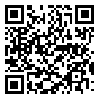Volume 16 - Special Issue on Cognitive Sciences
BCN 2025, 16 - Special Issue on Cognitive Sciences: 265-272 |
Back to browse issues page
Download citation:
BibTeX | RIS | EndNote | Medlars | ProCite | Reference Manager | RefWorks
Send citation to:



BibTeX | RIS | EndNote | Medlars | ProCite | Reference Manager | RefWorks
Send citation to:
Gili S, Ebrahimiasl S. Comparing Emotionally Focused Therapy vs Transcranial Direct Current Stimulation on Anxiety, Life Quality in CAD Patients During COVID-19. BCN 2025; 16 (S1) :265-272
URL: http://bcn.iums.ac.ir/article-1-2602-en.html
URL: http://bcn.iums.ac.ir/article-1-2602-en.html
1- Department of Clinical Psychology, Faculty of Humanities, North Tehran Branch, Islamic Azad University, Tehran, Iran.
2- Department of Clinical Psychology, Faculty of Psychology and Education Sciences, Central Tehran Branch, Islamic Azad University, Tehran, Iran.
2- Department of Clinical Psychology, Faculty of Psychology and Education Sciences, Central Tehran Branch, Islamic Azad University, Tehran, Iran.
Abstract:
Introduction: The COVID-19 pandemic has increased psychological distress and impacted the diagnosis and treatment of noncommunicable diseases. This study aimed to examine the comparative effectiveness of emotionally focused therapy (EFT) and transcranial direct current stimulation (tDCS) on the anxiety and quality of life (QoL) in patients with coronary artery disease (CAD) during the COVID-19 pandemic.
Methods: A total of 45 participants who met the criteria for a current episode of CAD, referred to Shahid-Rajaee Heart Hospital in Tehran City, Iran, were chosen by convenience sampling method. They were randomly assigned to a 9-week/60-minute EFT (n=15) group therapy, a 5-week/20-minute tDCS (n=15) experimental group, and one control group (n=15). They were assessed at pre-test, post-test, and 3-month follow-up. The study subjects completed the self-reported reliable and valid Persian version of questionnaires, Beck anxiety inventory (BAI), and health-related quality of life (HRQOL). Then, repeated measures analysis of variance was used to measure inferential statistics.
Results: There were significant improvements in anxiety and QoL scores in both EFT and tDCS groups over the post-test and follow-up period (P≤0.01). However, a difference was found when EFT had a greater effect on the anxiety and QoL.
Conclusion: These results showed that EFT and tDCS have effective interventions in reducing anxiety and improving the QoL of CAD patients, but improvements with EFT were greater than those with tDCS.
Methods: A total of 45 participants who met the criteria for a current episode of CAD, referred to Shahid-Rajaee Heart Hospital in Tehran City, Iran, were chosen by convenience sampling method. They were randomly assigned to a 9-week/60-minute EFT (n=15) group therapy, a 5-week/20-minute tDCS (n=15) experimental group, and one control group (n=15). They were assessed at pre-test, post-test, and 3-month follow-up. The study subjects completed the self-reported reliable and valid Persian version of questionnaires, Beck anxiety inventory (BAI), and health-related quality of life (HRQOL). Then, repeated measures analysis of variance was used to measure inferential statistics.
Results: There were significant improvements in anxiety and QoL scores in both EFT and tDCS groups over the post-test and follow-up period (P≤0.01). However, a difference was found when EFT had a greater effect on the anxiety and QoL.
Conclusion: These results showed that EFT and tDCS have effective interventions in reducing anxiety and improving the QoL of CAD patients, but improvements with EFT were greater than those with tDCS.
Keywords: Emotionally focused therapy (EFT), Transcranial direct current stimulation (tDCS), Anxiety, Quality of life (QoL), Coronary artery disease (CAD), COVID-19
Type of Study: Original |
Subject:
Cognitive Neuroscience
Received: 2022/11/18 | Accepted: 2023/11/28 | Published: 2025/03/18
Received: 2022/11/18 | Accepted: 2023/11/28 | Published: 2025/03/18
Send email to the article author
| Rights and permissions | |
 |
This work is licensed under a Creative Commons Attribution-NonCommercial 4.0 International License. |








